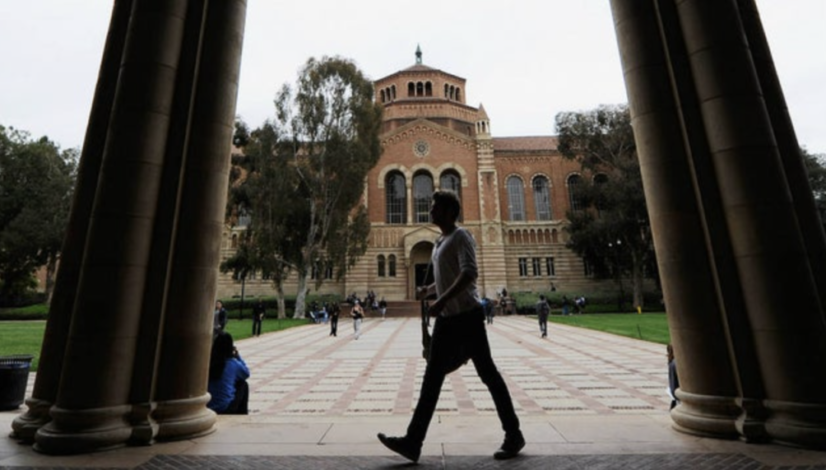Hispanics shock Democrats in deep blue California

Hispanics in California sent a strong message to Democrats: Help not wanted here.
One of the biggest hiccups in the recent election was the emphatic 14-point defeat of Proposition 16 in deep blue California. The proposal would have overturned a ban on affirmative action in place since 1996, impacting hiring, contracting and admissions policies at California’s public universities, community colleges and agencies.
It was put on the ballot by the chairwoman of the California Legislative Black Caucus in response to the killing of George Floyd.
As the New York Times noted recently, “the governor, a senator, members of Congress, university presidents and civil rights leaders” turned out to support the measure, calling it a “righting of old wrongs.”
A Los Angeles Times editorial enthusiastically endorsed the proposal, claiming that America is not a meritocracy, and that dismantling “the racism baked into our institutions” is essential to providing opportunity to people of color. Passing Prop 16, the Times argued, would help.
In short, the Democratic establishment pulled out all stops for Prop 16, outspent the opposition on advertisements and advocacy by $20 million to $1.5 million, yet it failed.
How could that have happened?
Defeated advocates of Prop 16 argued that the language on the ballot, written by the Democratic state Department of Justice, was confusing in that it did not include the words “affirmative action.” It said, instead: “Allows diversity as a factor in public employment, education and contracting decisions.” It further stated: “Permits government decision-making policies to consider race, sex, color, ethnicity or national origin in order to address diversity by repealing constitutional provision prohibiting such policies.”
That seems pretty straight-forward.
One of Prop 16’s advocates told a reporter, “I am glad we did this. We were able to talk about systemic racism.” She lamented that they “weren’t able to get through to voters.”
Maybe all that talk of racism is exactly what did get through to voters.
Frank Xu, a Chinese immigrant, was a chief player in the No on Proposition 16 campaign. He explained in an op-ed that, “It is wrong for the government to have the power to favor some of its citizens over some others. I witnessed in China how evil a government could be once it has this kind of power.”
He argued that Democratic legislators proposed Prop 16 not to seek diversity but as part of a racial activism program that included, among other things, board quotas for private corporations in California and a study on potential reparations for Black Americans. He believed the backers of affirmative action are “striving for quotas, as well as for government-mandated racial indoctrination and punitive, race-based payments extracted from taxpayers.”
While African Americans might have been swayed by the promise of more access to higher education if admissions were based on race, Hispanics and Asians may have thought that affirmative action programs would work to their detriment.
It is noteworthy that despite every major Latino organization promoting Prop 16, every single majority-Hispanic county voted against it. That might be because there has been a significant rise in the number of Hispanics attending the University of California system without the benefit of affirmative action. Records show Latinos accounting for 34 percent of all UC admissions in 2019, up from 14 percent in 1996.
Hispanics constitute some 39 percent of California’s population, and represented more than half of all high school graduates in 2018. Consequently, the group remains underrepresented in the university system, but they have clearly made significant progress.
Asian Americans also turned out to oppose Prop 16. Asians make up roughly 15 percent of California’s population, and in 2019 accounted for 36 percent of UC admissions. That group would have unquestionably been disadvantaged by changing the system.
Ward Connerly, a former regent of the University of California, led the fight to outlaw affirmative action in 1996, and this year rallied against Proposition 16. Connerly, who is African American, denied in a recent interview that the United States is systemically racist and explains the killing of George Floyd, which he says horrified him, as the outcome of bad police tactics. Needless to say, Connerly, a Trump supporter, is not popular on the left.
After the election, Connerly wrote an op-ed for USA Today in which he concludes that the defeat of Prop 16 was “an unequivocal victory for equality under the law.” He noted that the “No” vote went across party lines, attracting 77 percent of Republicans, 27 percent of Democrats and 63 percent of independents and that “embracing equality, not mapping out racial proportions, is an American value.”
Connerly argues that using affirmative action to make hiring decisions amounts to racial discrimination, and that the outcome of such policies has been tragic for Blacks, who thereby are “subjected to stigma and the soft bigotry of low expectations.”
Jason Riley, a Black conservative columnist, wrote a piece in 2012 for the Wall Street Journal entitled “The Harm of Racial Preferences.” In it, he echoes Connerly’s sentiments, noting that “in the name of diversity, blacks are being mismatched with schools, which increases drop-out rates and decreases minority representation in certain professional fields.”
The very positive outcome from the California vote suggests that Hispanics in California, presumed to be beneficiaries of Prop 16, decided they were better off competing on their own — despite every Democratic organization in the state telling them otherwise.
https://thehill.com/opinion/education/526642-hispanics-shock-democrats-in-deep-blue-california
Published on The Hill




